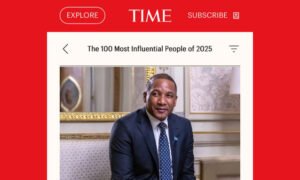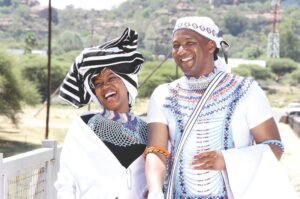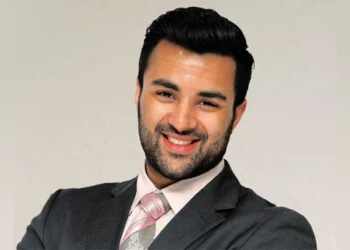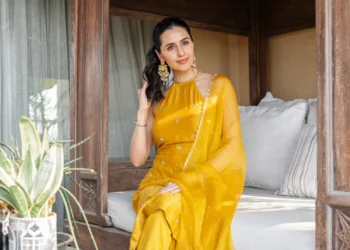Duma Boko, the 6th President of Botswana, is a political leader known for his unwavering commitment to democracy, justice, and social equality. Born in Mahalapye, Botswana, in 1969, Boko’s journey to the presidency is marked by his deep legal expertise and years of advocacy for political reform. As the Leader of the Opposition, he played a pivotal role in challenging the Botswana Democratic Party (BDP)’s long-standing rule, ultimately leading the Umbrella for Democratic Change (UDC) to a historic victory in 2024. With a vision focused on economic diversification, social equity, and democratic governance, President Boko is steering Botswana into a new era of political and social transformation.
Key Information
| Personal Info | Details |
| Full Name | Duma Gideon Boko |
| Date of Birth | December 31, 1969 |
| Place of Birth | Mahalapye, Botswana |
| Ethnicity | Motswana (Botswana native) |
| Nationality | Botswana |
| Political Party | Umbrella for Democratic Change (UDC) |
| Education | LLB from the University of Botswana; LLM from Harvard Law School |
| Occupation | President of Botswana, Politician, Lawyer, Activist |
| Spouse | Kaone Boko |
| Children | 3 children (names not publicly disclosed) |
| Residence | Gaborone, Botswana |
| Net Worth | Estimated to be around $5-10 million (exact value not publicly disclosed) |
| Social Media Presence | Active on social media platforms, advocating for democratic values, governance, and policy reforms |
| Languages Spoken | English, Setswana (native language) |
| Hobbies/Interests | Reading, community engagement, playing soccer, and advocating for youth empowerment |
| Awards | Included in TIME 100 Most Influential People (2025), several local recognitions for public service and leadership |
Early Life and Education
Duma Gideon Boko was born on December 31, 1969, in Mahalapye, a small town located in Central Botswana. Growing up in Botswana’s rural heartlands, Boko developed an early awareness of the socio-economic challenges facing his country. His upbringing in a developing nation deeply influenced his sense of social justice and equity, guiding his future political endeavors.
Boko pursued his higher education with a strong focus on law. He earned his Bachelor of Laws (LLB) degree from the University of Botswana before advancing his studies to obtain a Master of Laws (LLM) from Harvard Law School in the United States. His academic background, especially in law, equipped him with a deep understanding of governance, policy, and human rights—skills that would prove essential throughout his political career.
Political Beginnings and Leadership
Boko’s entry into the political arena was shaped by his strong belief in justice and democracy. He became involved in Botswana’s political landscape in the early 2000s, focusing on issues like human rights, governance, and democratic reforms. As a member of the Umbrella for Democratic Change (UDC), a coalition of opposition parties, he quickly gained recognition for his impassioned advocacy for change and transparency.
In 2011, Boko was appointed Leader of the Opposition in the Botswana National Assembly, a position that allowed him to challenge the long-standing dominance of the Botswana Democratic Party (BDP). Known for his sharp legal mind and oratorical skills, Boko’s leadership of the opposition party garnered him significant national attention.
Path to the Presidency
In 2024, after years of persistent campaigning and advocating for political reform and social justice, Duma Boko led the Umbrella for Democratic Change (UDC) to a historic victory. The UDC secured 36 seats in the Botswana National Assembly, resulting in the first-ever transition of power from the Botswana Democratic Party (BDP), which had been in power for almost 60 years.
On November 1, 2024, Duma Boko was sworn in as the 6th President of Botswana, marking a new chapter in the nation’s political history. This victory signaled a powerful shift in the country’s politics, with many seeing it as a triumph of democratic ideals and governance over entrenched political structures.
Political Philosophy and Vision for Botswana
As President, Duma Boko has emphasized a vision of inclusivity, transparency, and sustainable development. His leadership is driven by the belief that Botswana must move towards a more equitable society, addressing unemployment, income inequality, and economic diversification. Boko has been particularly vocal about the need for economic reforms that would reduce the country’s reliance on diamond mining, the cornerstone of its economy.
Under Boko’s leadership, Botswana is focusing on renewable energy, technological innovation, and small business development as pillars of its economic future. He is committed to tackling environmental challenges while also ensuring that economic growth benefits all citizens, particularly the marginalized.
Boko’s presidency also marks a more democratic approach to governance, with a strong focus on participatory democracy and community engagement. His administration has worked to encourage greater political pluralism and civil liberties, ensuring that all voices, particularly those from the opposition, are heard in policy-making.
Economic and Social Policies
One of the cornerstone achievements of Boko’s early presidency is the passage of a new national economic strategy that focuses on creating more job opportunities and reducing economic inequality. The strategy includes incentives for youth entrepreneurship, measures to promote green technologies, and reforms to support small and medium-sized enterprises (SMEs).
Boko’s administration has also prioritized education and public health. He has advocated for increasing funding to the country’s public healthcare system, which has been crucial for addressing both healthcare inequality and the COVID-19 recovery. In education, President Boko is committed to improving access to quality education and making technical training more accessible to young people to prepare them for future job markets.
Notable Achievements and Recognition
- TIME 100 (2025): Boko was named one of TIME magazine’s 100 Most Influential People for 2025, recognizing his impact on Botswana’s political landscape.

- Economic Initiatives: Upon taking office, Boko prioritized economic reforms, including renegotiating diamond sales agreements to boost Botswana’s share and extend mining licenses, aiming to stabilize and grow the economy.
- Social Policies: He has advocated for increasing the minimum wage and addressing unemployment, which stood at 27.6% in 2024, as part of his commitment to social justice and economic equity.
Global Recognition and Influence
In 2025, President Duma Boko was included in TIME Magazine’s 100 Most Influential People, a testament to his rising international profile and the global significance of his political journey. His efforts to foster a new political culture in Botswana have attracted attention from international organizations and policy-makers alike, with many seeing him as a potential model for other African nations seeking democratic reforms and social justice.
Boko’s foreign policy has focused on strengthening Botswana’s relations with neighboring African nations, promoting regional integration within the Southern African Development Community (SADC), and advocating for sustainable development on the global stage.
Personal Life and Family
Despite his public life, Duma Boko maintains a relatively private personal life. He is married to Kaone Boko, and they share a family. His relationship with his wife is one of mutual support, with both partners remaining deeply involved in social and community activities. Although he tends to keep his family life away from the public eye, his roots in Botswana’s rural communities and his connection to his heritage are central to his identity.
Boko’s humble beginnings and understanding of his country’s economic struggles remain a driving force behind his political career. He has often spoken about the importance of his upbringing in molding his perspective on governance and public service.
Future Prospects for Botswana
As President, Duma Boko’s leadership is already shaping a new future for Botswana. His focus on economic diversification, job creation, and improved social welfare is expected to significantly benefit the country’s youth and working-class citizens. His commitment to good governance, political transparency, and human rights remains unwavering, and many anticipate that his tenure will bring positive change for all sectors of Botswana’s society.
Interesting Facts About Duma Boko
- Law Career: Before diving into politics, Duma Boko had a distinguished legal career. His legal background has made him a strong advocate for constitutional governance and human rights, both of which have been central to his political philosophy.
- Leadership of the Opposition: He served as the Leader of the Opposition for several years, playing a key role in critiquing government policies and pushing for democratic reforms within Botswana. His ability to bring together various opposition groups paved the way for the success of the Umbrella for Democratic Change (UDC).
- International Recognition: In addition to being named to TIME’s 100 Most Influential People in 2025, Boko’s leadership and political acumen have earned him international recognition as an emerging figure in African politics. He has been invited to speak at global forums on democracy and governance.
- Family-Oriented: While he maintains a private life, Duma Boko is known to prioritize his family. He and his wife, Kaone Boko, have three children. Despite his demanding political career, he is often described as a dedicated father who values family time.
- Active in Community Development: Boko is deeply involved in his local community, advocating for policies that empower youth and women in Botswana. His community engagement is aimed at improving education, job opportunities, and social welfare.
- Athletic Interests: Outside of politics, Duma Boko enjoys playing soccer and has been known to participate in charity soccer matches. His interest in sports reflects his belief in the importance of teamwork, discipline, and physical health.
- Focus on Youth: A major part of Boko’s political agenda is the empowerment of Botswana’s youth population. He has often spoken about the need to expand educational opportunities and provide better job prospects for young people, believing they are central to the country’s long-term success.
- Passion for Reading: As a lawyer and politician, Boko has a strong interest in reading, particularly in the fields of political theory, history, and law. His reading habits have helped shape his approach to governance and his leadership style.
- A Vision for Economic Diversification: A key goal of Boko’s administration is to diversify Botswana’s economy beyond its reliance on diamond mining. He has proposed several initiatives focused on renewable energy, small business development, and technology innovation to ensure long-term prosperity for the nation.
Read more biographies and success stories of business leaders, celebrities, healthcare professionals etc. at Leader Biography.







